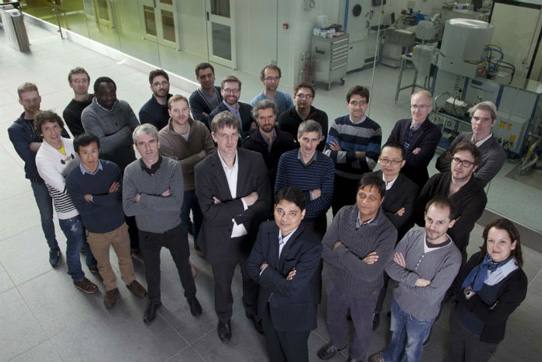- News
2 March 2015
Tyndall to lead EU Horizon 2020-funded €5.2m project developing thermally intelligent smart photonics systems
Ireland's Tyndall National Institute (based at University College Cork) is to lead a European consortium in a European Union (EU)-funded project to develop and demonstrate a scalable, thermally enabled 3D integrated optoelectronic platform that can make photonic devices up to fives times more efficient, resulting in faster data transmission at a lower cost.
Funding of €5.2m under Horizon 2020's call for Smart Integration Systems will see industry and research partners from Ireland, Germany, The Netherlands and France collaborate on the three-year project 'Thermally Integrated Smart Photonics Systems' (TIPS). Tyndall will work with partners from III-V Lab, University of Hamburg, Alcatel-Lucent Bell Labs Ireland, CNRS Institutes (INL, ILM and IMN), Stokes Institute University of Limerick, LioniX BV, Alcatel-Lucent Bell Labs France, and Communicraft Ltd.

Picture: The TIPS team at Tyndall National Institute.
With an anticipated 11.5 billion mobile-ready devices in the world by 2020 and the connectivity of those devices increasing through the Internet of Things, the existing operational bandwidth will be insufficient to cope with Europe's ever-increasing data demands. Significantly more bandwidth is therefore required to avoid bottle-necking Europe's expanding digital economy.
"We will seek to develop an intelligent circuit that can thermally control its own operations, making it up to five times more efficient," says project coordinator Dr Kafil M. Razeeb, senior research scientist at Tyndall. Specifically, TIPS will heterogeneously integrate micro-thermoelectric coolers and micro-fluidics with optoelectronic devices. "By precisely self-tuning its own temperature, the device can produce a more precise wavelength, meaning faster data transmission at a lower cost," Razeeb adds.
http://ec.europa.eu/digital-agenda/en/news/


